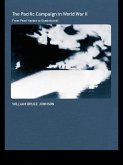A new look at how Britain's defence establishment learned to engage Japan's armed forces as the Pacific War progressed.
Douglas Ford reveals that, prior to Japan's invasion of Southeast Asia in December 1941, the British held a contemptuous view of Japanese military prowess. He shows that the situation was not helped by the high level of secrecy which surrounded Japan's war planning, as well as the absence of prior engagements with the Imperial Japanese Navy and Army.
The fall of 'Fortress Singapore' in February 1942 dispelled the notion that the Japanese were incapable of challenging the West. British military officials acknowledged how their forces in the Far East were inadequate, and made a concerted effort to improve their strength and efficiency. However, because Britain's forces were tied down in their operations in Europe, North Africa and the Mediterranean, they had to fight the Japanese with limited resources. Drawing upon the lessons obtained through Allied experiences in the Pacific theatres as well as their own encounters in Southeast Asia, the British used the available intelligence on the strategy, tactics and morale of Japan's armed forces to make the best use of what they had, and by the closing stages of the war in 1944 to 1945, they were able to devise a war plan which paved the way for the successful war effort.
This book will be of great interest to all students of the Second World War, intelligence studies, British military history and strategic studies in general.
Douglas Ford reveals that, prior to Japan's invasion of Southeast Asia in December 1941, the British held a contemptuous view of Japanese military prowess. He shows that the situation was not helped by the high level of secrecy which surrounded Japan's war planning, as well as the absence of prior engagements with the Imperial Japanese Navy and Army.
The fall of 'Fortress Singapore' in February 1942 dispelled the notion that the Japanese were incapable of challenging the West. British military officials acknowledged how their forces in the Far East were inadequate, and made a concerted effort to improve their strength and efficiency. However, because Britain's forces were tied down in their operations in Europe, North Africa and the Mediterranean, they had to fight the Japanese with limited resources. Drawing upon the lessons obtained through Allied experiences in the Pacific theatres as well as their own encounters in Southeast Asia, the British used the available intelligence on the strategy, tactics and morale of Japan's armed forces to make the best use of what they had, and by the closing stages of the war in 1944 to 1945, they were able to devise a war plan which paved the way for the successful war effort.
This book will be of great interest to all students of the Second World War, intelligence studies, British military history and strategic studies in general.
Dieser Download kann aus rechtlichen Gründen nur mit Rechnungsadresse in A, B, BG, CY, CZ, D, DK, EW, E, FIN, F, GR, HR, H, IRL, I, LT, L, LR, M, NL, PL, P, R, S, SLO, SK ausgeliefert werden.









